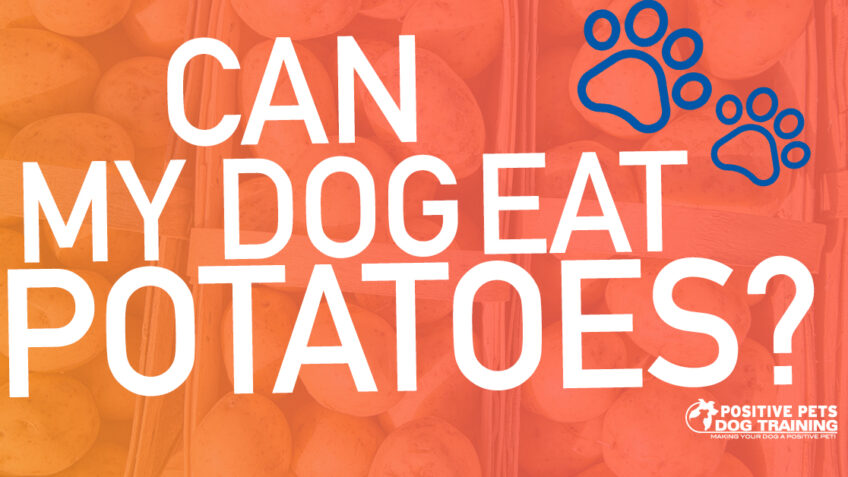Can My Dog Eat Potatoes?

Potatoes are a common household food time, so it’s normal to wonder whether or not they’re safe for your canine companion. Here’s a breakdown of everything you need to know about dogs and potatoes.
Are Potatoes Safe for Dogs?
The only part of the potato that isn’t safe for your pooch is a Glycoalkaloid (a family of chemical compounds to which sugar groups are appended) called solanine. You can find solanine in raw potatoes, potato skins, potato plants, and green potatoes. If you properly wash, skin, and cook a plain potato, then generally, it should be alright for Fido to eat. However, it shouldn’t be the central part of your canine’s diet due to its high levels of carbohydrates.
Sweet Potatoes
Sweet potatoes actually belong to a completely different plant family than white and red potatoes. While regular potatoes belong to the Solanaceae family, sweet potatoes belong to the Convulvacea family. Also, unlike regular potatoes, sweet potatoes do not contain solanine. However, you should still peel and cook sweet potatoes just like you would any other type of potato since leaving it raw can make it harder for your canine to chew and digest. Like regular potatoes, though, sweet potatoes are also rich in carbohydrates. Therefore they should not be a significant part of Fido’s diet.
Mashed Potatoes
As long as you don’t add anything extra to the potatoes, then serving them mashed is perfectly fine. Ingredients that are commonly added to mashed potatoes like salt, butter, and milk can negatively impact your furry friend’s health and should be avoided. Just remember that your pup won’t mind if their potatoes aren’t as smooth and creamy as the ones you usually eat.
Raw Potatoes
You should never try to feed your four-legged friend raw potatoes. When left uncooked, especially if the skin isn’t take off, the potato will still contain solanine. Even if only consumed at low levels, solanine can still cause your pooch to have an upset stomach. Additionally, chunks of raw potatoes can also become easily stuck in your pup’s throat and cause them to choke.
Overall, potatoes are safe for your furry friend to consume, as long as you wash, skin, and properly cook them. However, be sure that you only feed them to your canine in moderation, because as mentioned before – they are very rich in carbohydrates.
